Why Choose Intelligent Hybrid Solar Inverter with Wifi for Your Business?
Feb 06, 2026
If you run an energy company, manage a government agency, or distribute solar solutions, you know just how vital energy efficiency and control are for your business. Intelligent Hybrid Solar Inverter with Wifi gives you real-time energy insights and lets you manage your system from anywhere. Businesses have seen impressive gains, like smart energy conversion and early fault detection, making operations smoother and reducing after-sales headaches. In 2024, commercial applications reached a 30% market share, while industrial applications hit 15%. Government incentives make adoption even more attractive:
Incentive Type
Benefit
Tax Credits
Reduces your business tax bill for solar adoption
Subsidies
Lowers installation and equipment costs
Feed-in Tariffs
Pays you for the energy your system produces
Rooftop Solar Policies
Makes it easier to install solar on your buildings
Choosing a Hybrid Solar Inverter with Wifi helps you boost sustainability, cut costs, and stay ahead in a fast-growing market.
Key Takeaways
Intelligent Hybrid Solar Inverter with Wifi offers real-time monitoring, allowing you to manage energy systems from anywhere, enhancing operational efficiency.
Businesses can reduce energy costs by up to 61% with smart inverters, leading to significant savings that can be reinvested into growth.
Automated optimization features ensure efficient energy use, minimizing reliance on traditional power sources and extending battery life.
Seamless power switching during outages keeps critical operations running, reducing downtime and maintaining productivity.
Easy installation and integration with existing systems simplify the upgrade process, allowing businesses to adapt and grow without hassle.
Intelligent Hybrid Solar Inverter with Wifi for Commercial Energy Management
Real-Time Monitoring and Control
You want to stay in control of your energy assets, no matter where you are. Intelligent Hybrid Solar Inverter with Wifi gives you that power. With Wifi connectivity, you can check your system’s status from your office, your phone, or even while traveling. This feature is a game-changer for energy companies, government agencies, and solar distributors who manage multiple sites or large installations.
Here’s what you can do with real-time monitoring and control:
Access live data on energy production, battery status, and consumption trends through web and mobile apps.
Get instant alerts and notifications if something needs your attention, so you can act before small issues become big problems.
Use AI-driven IV curve diagnosis to spot potential faults early, reducing downtime and after-sales headaches.
Integrate with your existing energy management systems for seamless demand-side management and better energy utilization.
Benefit from arc fault detection that cuts power within half a second if a risk appears, keeping your infrastructure safe.
Tip: Real-time monitoring means you can make decisions based on up-to-the-minute data, not guesswork. That’s how you keep your operations running smoothly and efficiently.
You can also view a wide range of data remotely, which helps you make smarter choices for your business. Here’s a quick look at what you can access:
Feature
Description
Convenience of Mobile Monitoring
Access crucial data like battery status and energy consumption anytime, anywhere.
Real-Time Monitoring
Track energy usage, battery health, and power interruptions from your phone.
Remote Control Capabilities
Remotely operate the inverter, switch modes, or shut off as needed.
Alerts & Notifications
Receive real-time troubleshooting notifications when issues arise.
Optimized Energy Use
Smart features enhance performance, ensuring longer battery lifespan and efficiency.
Advanced analytics
Get detailed insights, including voltage and load metrics.
Energy Insights
See if your solar power output meets your energy needs.
With these tools, you can reduce manual checks, minimize downtime, and deliver a superior user experience for your clients and teams.
Automated Optimization for Business Operations
Managing energy for a business is complex, but Intelligent Hybrid Solar Inverter with Wifi makes it easier. The system uses smart algorithms to optimize how your facility uses solar, battery, and grid power. You don’t have to worry about switching between sources or wasting energy—automation handles it for you.
Here’s how automated optimization benefits your business:
Feature
Benefit
Remote monitoring
Know about issues instantly, so you can fix them fast and avoid costly downtime.
Smart algorithms
Maximize solar energy use and minimize reliance on traditional power sources.
Switching between power sources
Efficiently manage solar, battery, and grid power for the best results.
Streamlined charging/discharging
Reduce power wastage and extend battery life, which saves you money on replacements.
Constant power supply
Keep your critical devices running safely and reliably, no matter what.
You get more than just energy savings. You also enjoy lower maintenance needs, fewer after-sales service calls, and a system that adapts as your business grows. Intelligent Hybrid Solar Inverter with Wifi helps you focus on your core operations while your energy system works in the background, always optimized and always reliable.
Cost Savings and ROI
Energy Cost Reduction
You want your business to save money on energy every month. Intelligent Hybrid Solar Inverter with Wifi helps you do just that. When you switch to this advanced system, you can use more solar power and less grid electricity. That means lower bills and more predictable costs for your company.
Many businesses see a big drop in their monthly energy expenses after installing a smart hybrid inverter. For example:
The average energy bill for a smart facility dropped from $139.50 to $54 per month.
That’s a 61% reduction in energy costs.
On average, companies save about $85 each month.
These savings add up over time. You can invest the extra cash in other parts of your business or use it to expand your operations. You also get the benefit of stable energy costs, which makes budgeting easier.
Tip: Lower energy costs mean you can offer better prices to your customers or improve your services without raising rates.
Lower Maintenance with Remote Diagnostics
You know that downtime can hurt your business. Intelligent Hybrid Solar Inverter with Wifi comes with remote diagnostics, which helps you spot problems before they become serious. You can check system health from your phone or computer, so you don’t need to send technicians for every small issue.
Here’s what businesses have experienced with remote diagnostics:
One industrial complex saw a 15% reduction in downtime.
Another report showed a 92% drop in unplanned outages.
Less downtime means your operations run smoothly. You spend less on emergency repairs and after-sales service. Your team can focus on core tasks instead of troubleshooting. This technology gives you peace of mind and helps you deliver a better experience to your clients.
With remote diagnostics, you keep your system healthy and your business moving forward.
Reliability and Business Continuity
Seamless Power Switching
You know how important it is to keep your business running, even when the grid goes down. With an Intelligent Hybrid Solar Inverter with Wifi, you get a system that keeps your critical infrastructure powered without interruption. When a grid outage happens, the inverter quickly switches to battery backup mode. Your business forms its own microgrid, so essential devices stay on and operations continue smoothly.
Here’s how the system supports your business during outages:
It manages power flow between solar panels, batteries, and your most important equipment.
The inverter prioritizes critical loads, so you never lose power where it matters most.
When the grid comes back, the system switches back to grid-tied mode and starts recharging the batteries for next time.
This seamless transition means you avoid costly downtime and keep your team productive. You also reduce after-sales service needs because the system handles switching automatically.
Proactive Alerts and System Health
You want to catch problems before they affect your business. That’s where proactive alerts come in. The inverter sends you notifications if it detects a potential issue. You can act fast, schedule maintenance, and avoid bigger problems down the road.
Here’s what you get with proactive alerts and system health monitoring:
Early detection of issues helps you prevent system failures.
Timely maintenance keeps repairs simple and affordable.
Preventive care costs less than emergency fixes and lost energy production.
Real-time app monitoring gives you live data and generation stats, so you always know how your system is performing.
With these features, you enjoy a reliable energy system that’s easy to manage. Your business stays up and running, and you spend less time worrying about maintenance.
Scalability and Integration
As your business grows, you need energy solutions that can keep up. Intelligent hybrid solar inverters with Wifi give you the flexibility to expand your system without hassle. You can start with what you need now and scale up as your operations grow. This approach saves you time, money, and effort.
Dual-Output Flexibility for Expansion
If you manage a multi-building campus or plan to expand, you want an inverter that adapts. The Dual-Output Hybrid Solar Inverter offers just that. You can connect multiple units in parallel, support generator connections from 10–50kW, and enjoy a multi-purpose port design. This means you can power critical loads and large equipment without worrying about downtime.
Feature
Description
UPS-level switching
Less than 4 ms transfer time keeps essential systems running during outages.
Paralleling capability
Connect up to 15 units for large-scale projects.
Mixed-parallel operation
Integrate with other grid-tied inverters for even more flexibility.
You can easily add inverter capacity or scale up your PV and battery systems as your needs change. This flexibility ensures your investment grows with your business.
Easy Integration with Existing Systems
You don’t have to overhaul your current setup to enjoy the benefits of a smart inverter. Just follow a few simple steps:
Pick a compatible inverter with Wifi and app control.
Install and connect it to your network.
Set up routines in your energy management software to optimize usage.
Monitor and adjust settings in real time for maximum efficiency.
This process lets you blend new technology with your existing infrastructure, making upgrades smooth and stress-free.
Software Updates and Remote Support
Staying up to date is easy. Your inverter receives software updates over Wifi, which boost efficiency and keep your system secure. You also get remote monitoring and real-time data analysis, so you can spot issues before they become problems.
Benefit
Description
Enhanced Efficiency
Updates improve energy conversion and battery management.
System Security
Protects against bugs and performance issues.
Remote Monitoring
Check system status anytime, anywhere, for peace of mind.
Intelligent Operation
Manage maintenance with less effort and fewer after-sales calls.
With these features, you get a system that grows with you, integrates easily, and delivers a top-notch user experience.
User Experience for Business Owners
Simple Installation and Setup
You want a system that gets up and running fast, without headaches. Intelligent Hybrid Solar Inverter with Wifi makes installation simple, even for large commercial projects. You just follow a few easy steps—no need for complicated wiring or special training. The process saves you time and reduces after-sales support calls.
Here’s a quick look at how installation compares:
Step
Hybrid Inverter Installation
Traditional Inverter Installation
1
Install the manufacturer's app
Not required
2
Scan the QR code on the inverter
Not applicable
3
Connect to business Wi-Fi
Not applicable
4
Check Fault and Normal/Run lights
Not applicable
Most commercial teams finish setup in just 5 to 10 business days. You can monitor the system right away, which means less downtime and fewer calls for help. This easy process keeps your maintenance simple and your after-sales needs low.
Intuitive Dashboard and App
Managing your energy shouldn’t feel complicated. With an intuitive dashboard, you see everything you need at a glance. You can track energy flows, check battery status, and even predict solar generation using weather data. This helps you make smart decisions and optimize costs.
Business owners love these app features:
Feature
Description
Real-time energy monitoring
See instant updates on energy production and usage.
Smart energy management
Adjust settings to boost efficiency and save money.
Cost optimization adjustments
Change usage patterns to lower your bills.
Predictive maintenance insights
Get alerts before issues become problems, so you avoid downtime.
User-friendly mobile apps
Anyone on your team can use the app, no technical skills needed.
You get a smooth experience from start to finish. The Intelligent Hybrid Solar Inverter gives you control, flexibility, and peace of mind. Your team spends less time on maintenance and more time growing your business.
Tip: A great user experience means fewer after-sales headaches and more reliable performance for your company.
When you choose an Intelligent Hybrid Solar Inverter with Wifi, you unlock real value for your business. You save on energy costs, gain more control, and keep your operations running smoothly. Here’s what you can expect:
Lower your energy bills by up to 50% over time.
Enjoy easy integration and simple maintenance, so your team spends less time on after-sales support.
Meet rising energy demands and boost your sustainability goals.
Stay ready for the future with reliable, scalable technology.
You set your business up for growth and stability. If you want a smarter way to manage energy, now is the time to explore solutions like Hybrid Solar Inverter with Wifi.
FAQ
How does Wifi connectivity benefit my business?
You get instant access to system data from anywhere. This means you can monitor performance, fix issues fast, and reduce after-sales visits. Your team saves time and keeps operations running smoothly.
Can I expand my solar system as my business grows?
Yes! You can add more inverters or batteries easily. The system adapts to your needs. You avoid costly upgrades and keep maintenance simple.
Is the installation process complicated?
No, you follow a few clear steps. The app guides you through setup. Your team gets the system running quickly, which means less downtime and fewer after-sales calls.
What kind of support do I get after installation?
You receive remote monitoring, software updates, and real-time alerts. This support helps you solve problems before they grow. You spend less on maintenance and enjoy a better user experience.
Will the inverter work with my existing equipment?
Yes, most intelligent hybrid inverters integrate with current systems. You don’t need to replace everything. This makes upgrades easy and keeps your business moving forward.
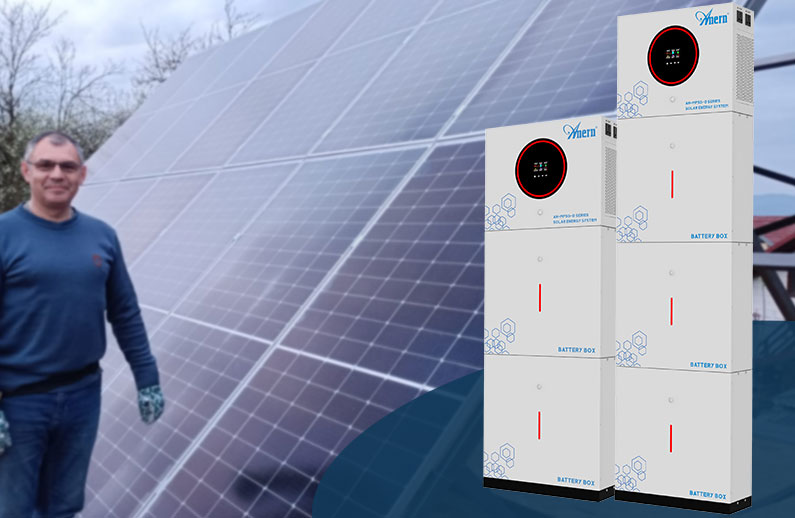
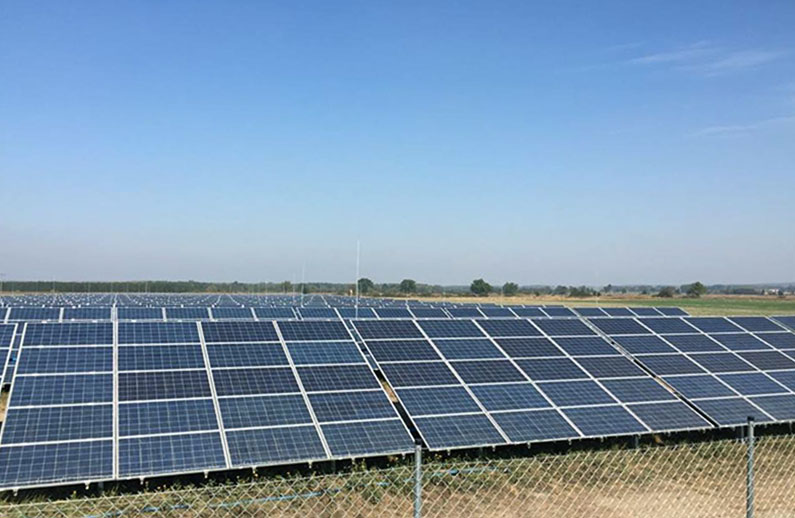
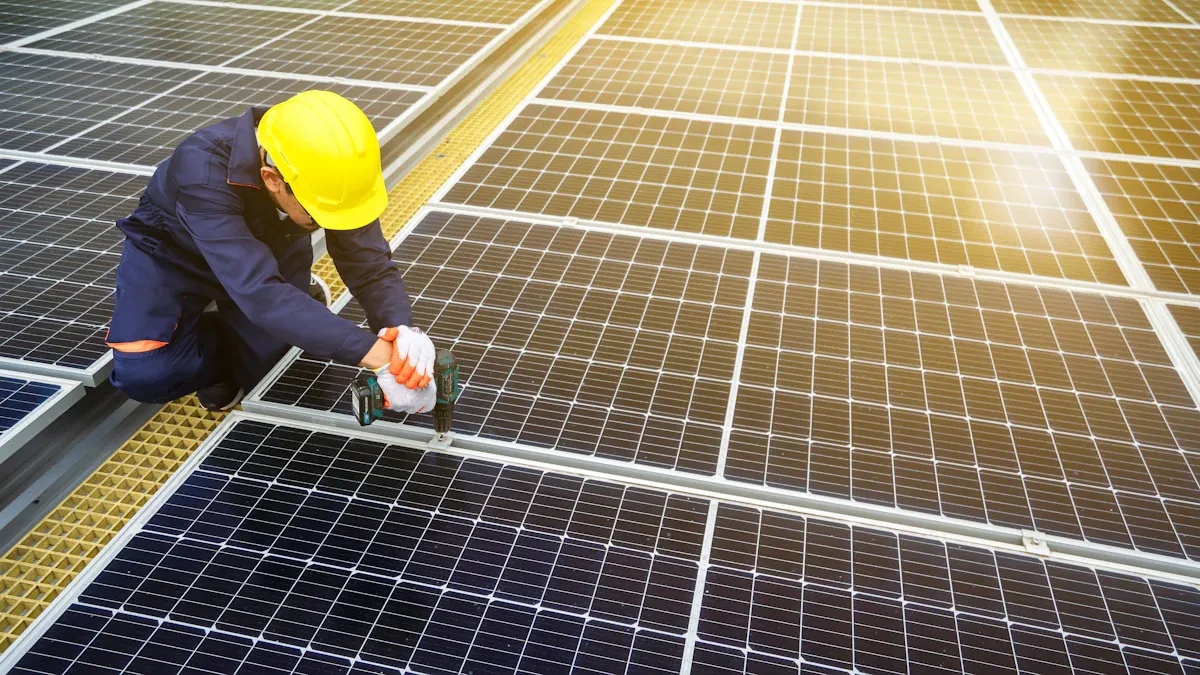
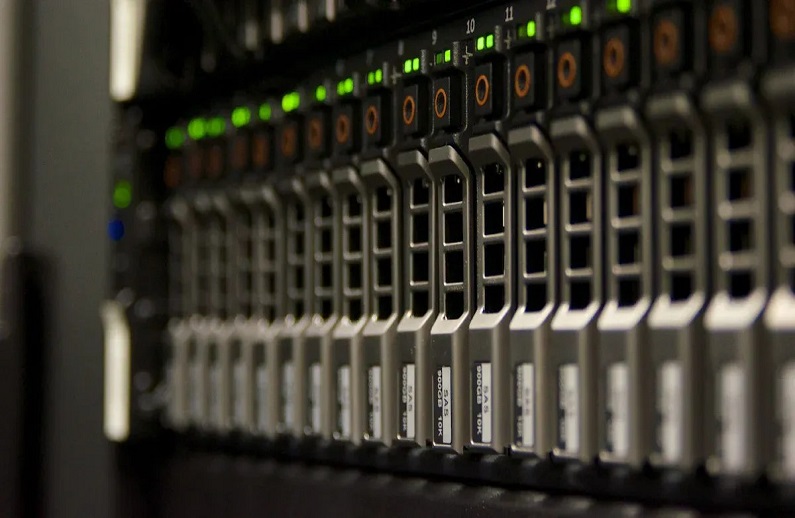
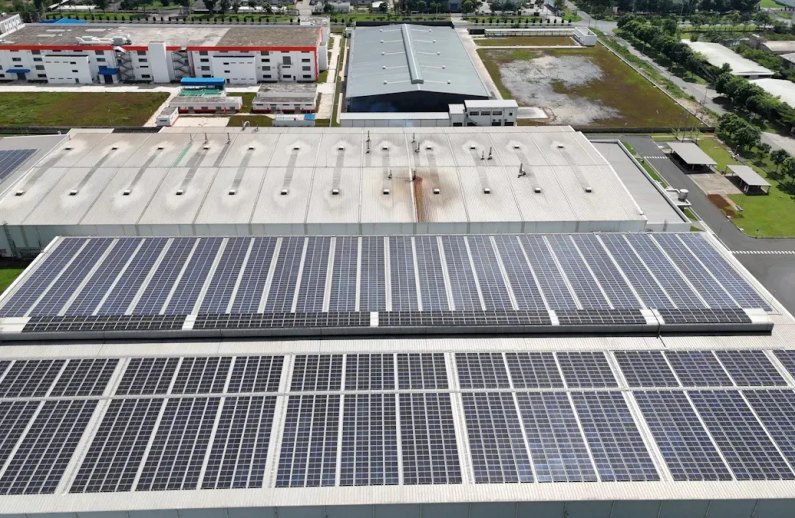
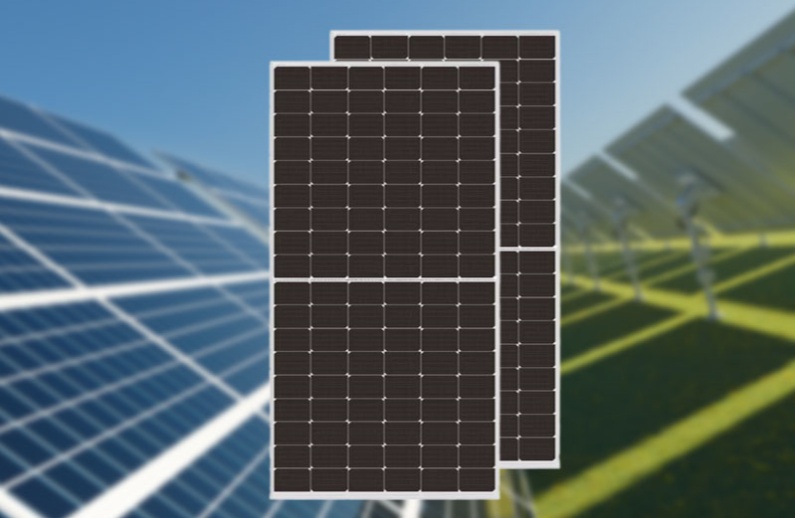
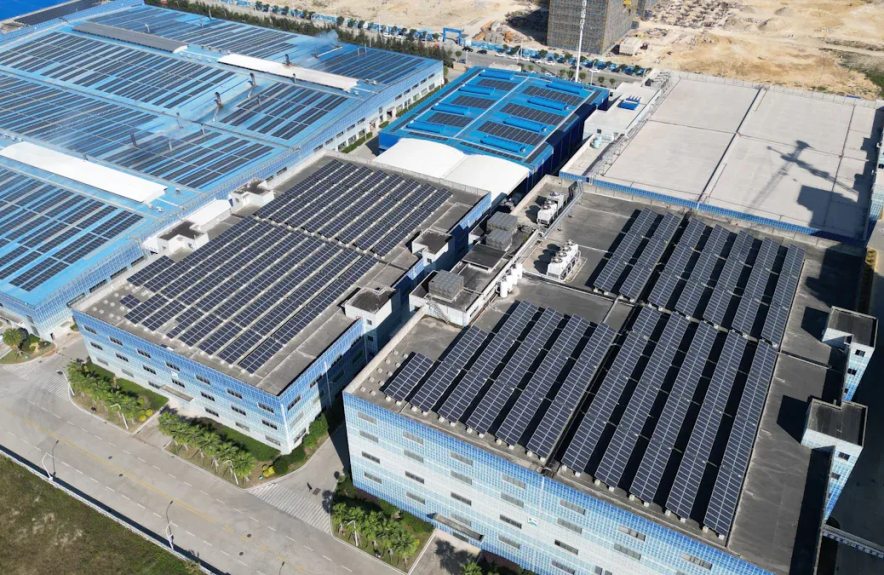
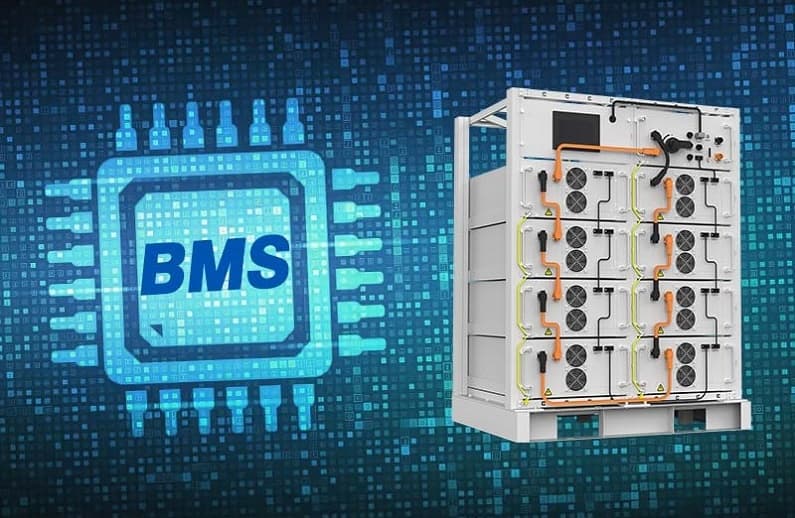

 Network Supported
Network Supported